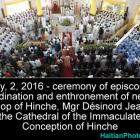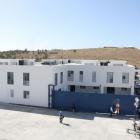ADVERTISEMENT
Photos
Edouard Jules, Minister of social programs and projects
Here is a picture of Edouard Jules, Minister in charge of social programs and projects
The prime minister of Haiti, Evans Paul, on 1 July 2015, delegated the responsibility of the social programs of the country to the newly selected minister, Edouard Jules. He has been made in charge of all the social and cultural proceedings and programs of Haiti. He is the 21st minister of the cabinet led by president Martelly. Edouard Jules on his side has expressed his gratitude towards the president and prime minister for entrusting him with the job. He has resolved to take steps for the all round social development of Haiti by revaluation of the plans which had been withheld due to lack of funds.
Sophia Martelly in Tête-à-l'eau, a town of Anse-à-Pitre
Here is a picture of Haiti First Lady Sophia Martelly in Tête-à-l'eau, It is a town in Haiti in Anse-à-Pitre located not far from the border between Dominican Republic and Haiti.She was there with her mobile clinic to provide some medial help to the Haitians being deported from the Dominican Republic.
The first lady of Haiti, Sophia Martelly, has always been known for her philanthropy and humanitarian activities for the welfare of the people of Haiti. Recently, she has been visiting a lot of places to offer a helping hand for those in need. She paid a visit to the deported Haitians at the borders in Tête-à-l'eau, a town of Anse-à-Pitre to discuss with them and take note of their immediate needs and provide them with medical attention. This was however not the first time she visited them. She had come to interact with the unfortunate migrants twice earlier. Mrs. Martelly also had discussions with representatives of Médecins Sans Frontières (MSF) International specifically on dealing with medical emergencies. She also attended a presentation by the Ministry of Health, UNAIDS and UNICEF with the aim to eradicate AIDS among teenagers by the year 2030.
Tête-à-l'Eau, Banane, localité Bota,
Here is a picture of the localityTête-à-l'Eau, Banane in Bota, Haiti. It is an area targeted to provide housing for the Haitians arriving from the Dominican Republic.
This image was provided thanks to Mr. Maxo JOSEPH who went to Tête-à-l'Eau, Banane, localité Bota to see the progress as the Haitian Government promised to welcome more than tree thousand people.
Hundreds of thousands of undocumented immigrants in the D.R of whom most were Haitians or people of Haitian descent failed to register themselves within the Dominican deadline on June 17, 2015. Some human rights activists have called for an extension of this deadline. Many undocumented immigrants stood in the long lines outside the government offices for days, but were turned away repeatedly as they were told they lack necessary documents. Many of them could not come back as they could not convince their employers to give them time off of work to go register. As per the report of the Interior and Police minister Jose Ramon Fadul, so far 275,000 undocumented foreigners (about 50% of the total undocumented immigrants in the D.R) have been registered. The D.R authority is going to work with the remaining because they don't want to mistreat anyone, but want everyone to be regularized.
Haiti's Reception Center for Returnees at Malpasse
Here is a picture of Haiti's Reception Center for Returnees at Malpasse following mass deportation of undocumented Haitians and Dominicans of Haitian descent.
Malpasse situated in the Ouest Department of Haiti, is one of the four land connections between Haiti and the Dominican Republic. To combat problem of statelessness of the Haitians deported from the Dominican Republic, the Haitian government reportedly set up reception centres at Malpasse. But these so called reception centres are far from capable to accommodate the deported people. The reception centre at Malpasse is nothing more than a flimsy plywood hut in the midst of desert of white gravel. The government had declared in June that the reception centres were ready to welcome the Haitians, but the reality of the situation is rather miserable. The migrants are in a devastated, homeless and stateless condition in Haiti.
Bèl Bagay Lakay Haitian Arts and Culture Festival in downtown Farmington
Downtown Farmington will have a tasst of the Haitian culture as Bèl Bagay Lakay Haitian Arts and Culture is scheduling to hold a festivity in the downtown area this July.
The Bèl Bagay Lakay Haitian Arts and Culture Festival was celebrated on 11 and 12 July 2015 at Riley Park in Farmington. "Bèl Bagay Lakay" in Haitian Creole aptly means 'things back from home'. The festival showcased Haitian artworks, books, music, dance and food providing an insight into the rich culture of Haiti. Haitian culture is a beautiful amalgamation of some of the richest cultures in the world. Haitian art on the other and has its distinctive character. Artists from faraway places attended the festival to display their artworks as well as witness other crafts displayed. For the younger visitors, arrangements were made for games and a literary corner as well.
Fireworks incident to cost Jason Pierre-Paul $60 Million Contract
Just having some fund during the the 4th of July holiday could be very expensive. If you don't believe me, go ask Haitian-American New York Giants football star, Jason Pierre-Paul. He received the news that the New York Giants are withdrawing their $60 million long-term contract following a fireworks incident over the weekend when he suffered a hand injury while attempting to light fireworks.
Jason Andrew Pierre-Paul is one of the star footballers of New York Giants who has been playing for the team since 2010. Nicknamed JPP, he adeptly plays for the team at the defensive end line. Recently, the player injured his hand while celebrating Fourth of July by lighting crackers which accidently burst. His hand, although fortunately, has not undergone any serious permanent damage he has experienced severe burns on his palm and fingers. According to medical reports, the injury would take sufficient time to heal and as a consequence, the New York Giants might have to pull down a $60 million contract signed with the player. During his recovery span, the footballer will be missing numerous trainings and he might not be able to take part in the first leg of the 2015 season.
Carel Pedre on radio show Chokarella
Here is a picture of the popular Radio host Carel Pedre on radio show Chokarella
The forced deportations of unregistered Haitians from the Dominican Republic have caused considerable confusion and inconvenience. Carel Pedre, an influential social media figure and the host of Haiti's #1 Morning show Chokarella took to supporting the deported immigrants. He interviewed some of the deported Haitians and brought to light the problems faced by them. The interviewees have reported humiliation, lack of basic amenities and uncertainty in their jobs during their stay at Dominican Republic in the disturbed phase. The interviews aired on the radio have become very popular among his followers on social media and there seems to prevail a sense of condolence for the Haitians forcefully sent back to Haiti from Dominican.
The meaning of Time for Toto, Tan - Haitian Comedy
Here is a Haitian joke i received from a friend via facebook. I hope you will enjoy it
We receives some of these Haitian jokes from different sources and we think it is appropriate to share them with you. We are constantly in search of funny Haitian comedies, jokes to share with our viewers. If you know some interesting Haitian comedies, do not keep them for yourself. Send them to me via email. I will share them while attributing the appropriate credits to you
Haitians normally do not speak real Creole, they speak in broken French. For a long time, St. Lucian Creole has been called "broken French". Henry Breen, who was a colonial mayor of Castries in the mid-nineteenth century, assessed it a jargon formed from the French, and composed of words, or rather sounds, adapted to the organs of speech in the black population. Most of the Creole lexicon is derived from French, with significant changes in pronunciation and morphology. Haitians love their Creole proverbs and folktales told in Creole; they say that Creole jokes are just not as humorous when put into English. There is something about Creole that tends to make the speaker more animated and the hearer more comfortable. Harold Courlander once produced a nice compilation of Haitian jokes. Haiti has a oral, non-literate culture. Most of its wisdom is oral. It has a tradition of proverbs, jokes, riddles and stories which people have been telling around the evening fire for centuries.
CES, Haiti's Only Free School for Children With Disabilities
Centre d'Education Speciale (CES) or Centre for Special Education is the only free School for Children With Disabilities in Haiti.
The Centre d'Education Speciale (CES) is a special centre for the education and personal development of children suffering from various disabilities. The centre is situated in Port-au-Prince, the capital of Haiti and is the only free school which focuses on the education of the disabled children. Their main aim is to contribute to the social integration of more than 15000 children with special needs, belonging to a disadvantaged social stratum every year. According to statistical reports, a large fraction of the students with disabilities are unable to afford even basic education in the country because of the high expenses of education. In such a scenario, the CES in a noble as well as novel initiative and it has drawn the attention of filmmaker Lena Jackson, who endeavors to make a film about the centre and its works.
South African Minister Luwellyn Landers In Haiti
Here is a picture of South African Minister Luwellyn Landers who was conducting a visit to the Caribbean island of Haiti.
Lately, the deputy minister of South Africa, Luwellyn Landers is on a five nation with the motive to promote and sustain bilateral ties with the Caribbean countries. On his visit to Suriname, in north eastern South America, he had a meeting with the minister of Foreign Affairs Winston Lackin and a MoU was signed with the aim of establishing cooperation and sustenance of the cordiality the countries have had since 1995. On his visit to Haiti, the South African International Relations and Cooperation Deputy Minister is expected to have discussions and consultations with the Haitian minister of foreign affairs, Lener Renauld. He is also entitled to see the president Michel Martelly.

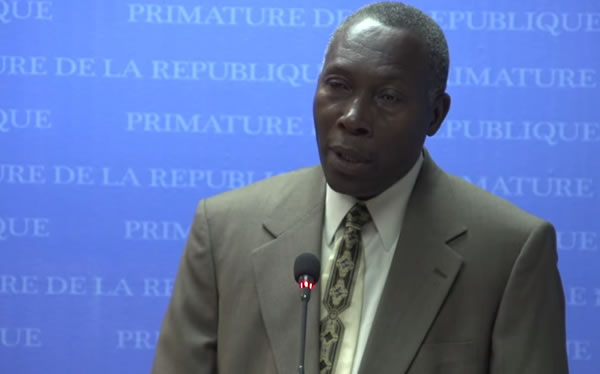
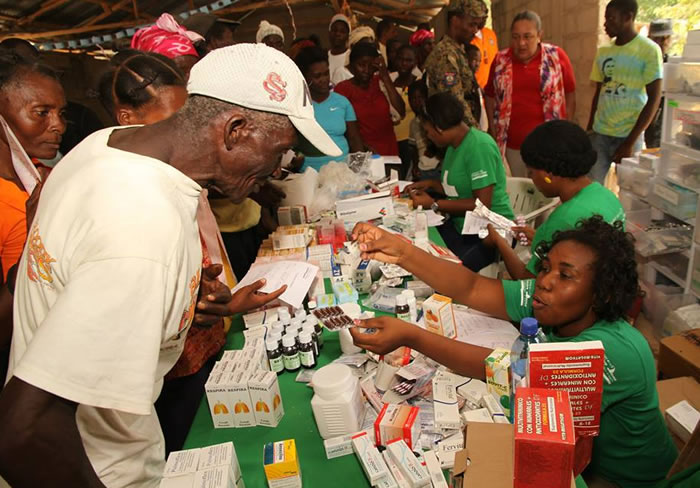
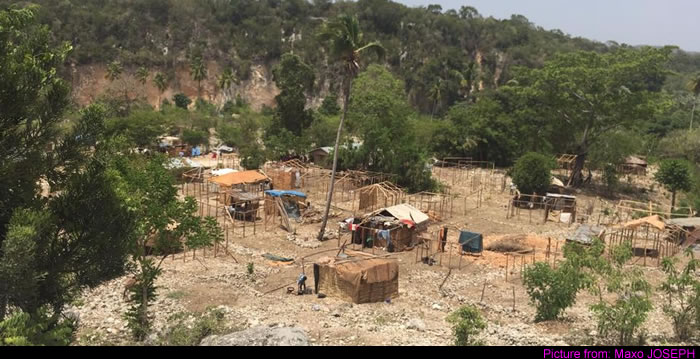
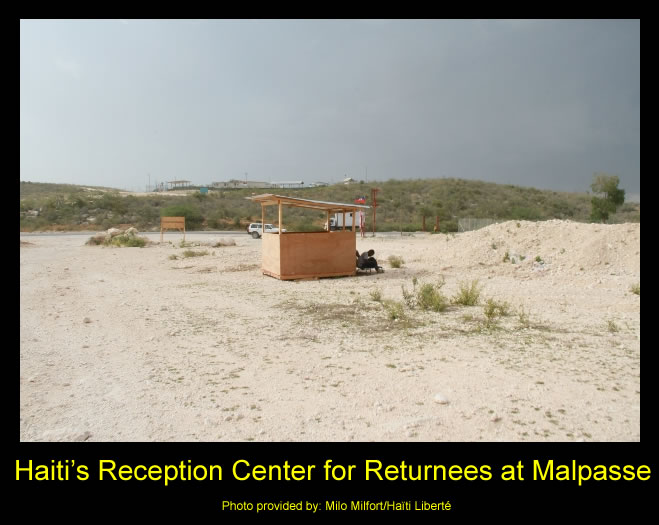


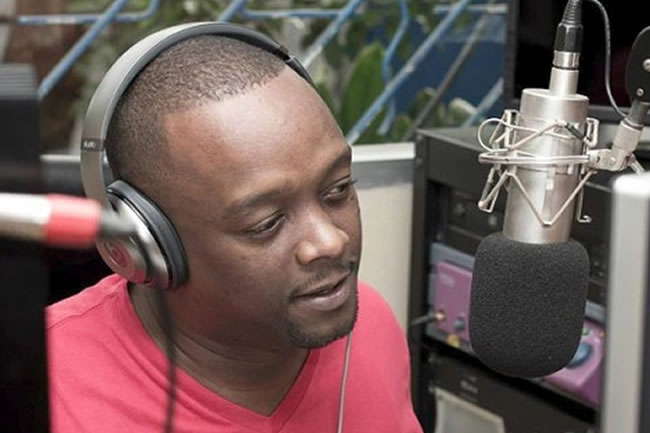
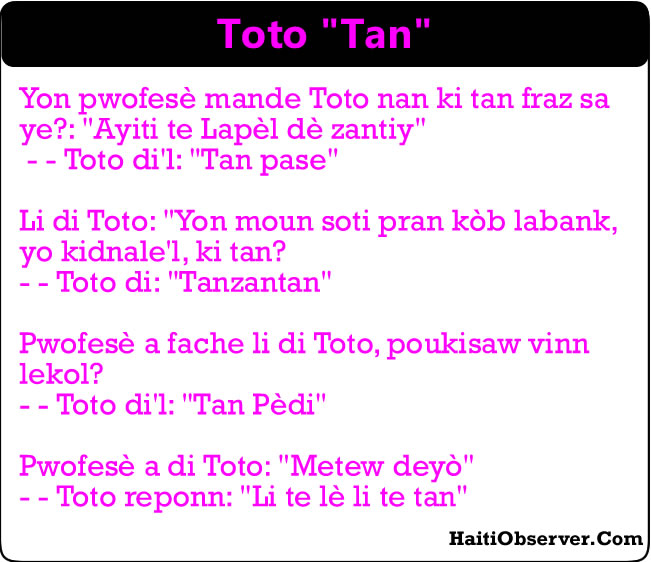
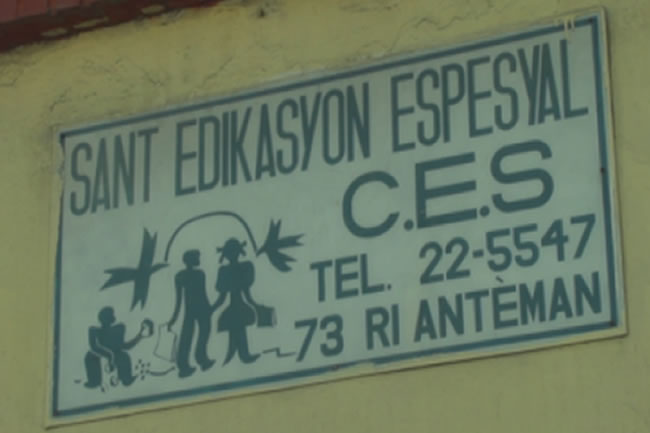
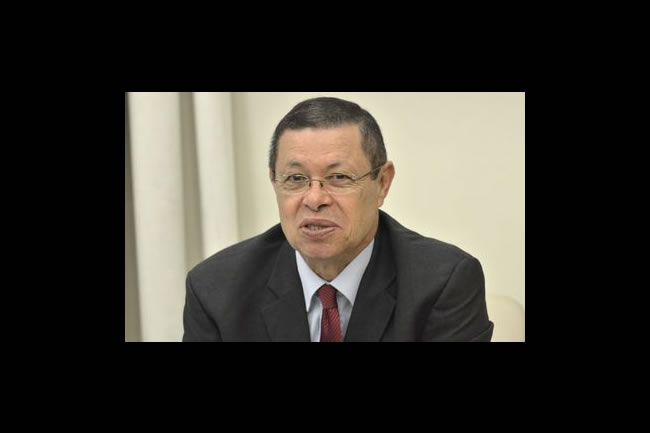
 Who will be the next president of Haiti?
Who will be the next president of Haiti?  François Nicolas Duvalier Potential Candidate for President of...
François Nicolas Duvalier Potential Candidate for President of... 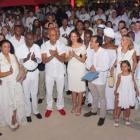 All inclusive Royal Decameron Indigo
All inclusive Royal Decameron Indigo 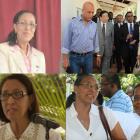 Dr. Michaëlle Amédée Gédéon is dead
Dr. Michaëlle Amédée Gédéon is dead 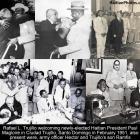 Rafael L. Trujillo welcoming Paul Magloire in Santo Domingo
Rafael L. Trujillo welcoming Paul Magloire in Santo Domingo  Delimart Plaza, Delmas 32, Port-au-Prince, Haiti being looted
Delimart Plaza, Delmas 32, Port-au-Prince, Haiti being looted  Haitians, the second largest black immigrant group in the US
Haitians, the second largest black immigrant group in the US  Dr. Henri Ford, First Haitian Dean At University of Miami Med...
Dr. Henri Ford, First Haitian Dean At University of Miami Med... 


